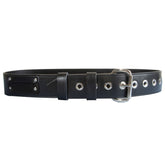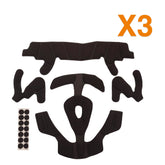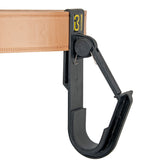The construction and industrial sector is a dynamic field where smart investments can really pay off. Sure, it can sometimes be costly, but whether you're an employer or an employee, putting money into top-quality equipment is essential for sustainability and effectiveness. Tools are the lifeline of the industry and after all, “a man is only as good as his tools.”
Unexpected Breakdowns
Imagine this: as an employer, you've invested in a top-notch piece of equipment, boosting your team's precision and efficiency while working on an industrial plant. Your team is on a tight schedule and repairing several kilometres of pipework.
But wait—what's that sound?
Suddenly, the plant shuts down and all work must cease. It's not your team's fault—they were working responsibly. It's not the equipment's fault either. Turns out, a foreign object somehow got inside the pipe and caused it to malfunction, causing a lengthy delay in getting the plant back up and running again, while costing millions of pounds in plant downtime.
Common Challenges of Foreign Materials
A one-off accident? Think again. Dealing with foreign materials damaging equipment is a common challenge that construction employers and employees often face. In fact, it is called Foreign Material Intrusion (FMI), the accidental occurrence of foreign materials finding their way into a product, leading to negative effects and consequences. These consequences can lead too:
- Equipment wear and tear
- Safety Breaches
- Decreased Efficiency
- Equipment Breakdown
- Higher Operating Costs
- Serious Contamination
But don't worry, there is a solution that can be successful if we work together!
Introducing a Solution to Your Workspace
Foreign Material Exclusion (FME) is a comprehensive set of procedures and practices designed to keep foreign materials—like dirt, broken parts, rags, tools, debris, and other objects—out of major areas during construction. The primary goal of FME is to safely manage and minimise the risk of accidents, injuries, or equipment damage caused by the presence of these unwanted objects.
Establishing FME Zones
One effective strategy companies can use to embrace FME procedures is establishing a Foreign Material Exclusion Zone (FME Zone). This clearly marked and designated area strictly enforces FME protocols to ensure no foreign objects enter. Employers can set up FME Zones near critical areas, typically around expensive or large machinery. By implementing these zones and procedures, companies can significantly reduce risks, prevent injuries, minimise accidents, and lower equipment costs.
It's a no-brainer!
Foreign Material Exclusion (FME) is a bigger deal in the construction industry than you might think. Health and Safety are crucial in any field, and implementing procedures that benefit everyone on-site while cutting costs is a no-brainer. It's true, “a man is only as good as his tools” … but that's only if those tools are in tip-top shape!
Click here to view our comprehensive FME equipment collection.


















